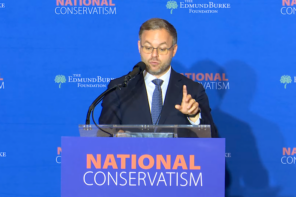It’s always nice to get a shout out in the New York Times, although this particular one comes from a few years back, before the most recent revelations of the NYPD’s activities, which our own Hussein Rashid, among others, has been all over. With all the talk of the NYPD and its relationship to New York’s huge Muslim community, of which I am a part, we deserve a sustained and public conversation.
But back to the Times first. Samuel Rascoff, a Professor at New York University’s School of Law (and former head of intelligence analysis for the NYPD), has an op-ed in today’s edition, “Uncle Sam is No Imam”:
The strategic problem is easier to see: Is the government a credible authority on Islamic interpretation? Based on the results of comparable efforts in Britain, the answer is a resounding no. Simply put, young Muslim men in the thrall of radical teachings will not embrace a more pacific theology because the F.B.I. tells them to, any more than Catholic bishops would have yielded to Mr. Obama’s plan to mandate coverage of contraceptives at Catholic hospitals if he had invoked canon law to defend his position.
Considering the recent (and welcome) coverage of the New York City Police Department’s entirely inappropriate behavior, which as far as we know up till now includes the sustained use of blatantly anti-Muslim propaganda films and frequent spying on everyday college students outside of New York City, Rascoff’s op-ed is timely. But it is tackling complicated questions, for which it isn’t easy to find answers. On what basis do we determine how to engage Muslims, if we are engaging them as Muslims?
How do we possibly avoid religion, when we are identifying them (us) by religion?
In fairness, Rascoff’s op-ed only skims the surface of his research; look to his Stanford Law Review article, “Establishing Official Islam: The Law and Strategy of Counter-Radicalization,” to understand where he is coming from and to understand—and every American taxpayer should—the long and convoluted history of American and Western governmental efforts to engage Muslims in a theological conversation. But allow me to dwell on these questions a little bit longer, and take them in my own direction.
As a targeted minority, with questionable law enforcement strategies all around us, it’s not hard to see why American Muslims appreciate governmental endorsement of our faith at the highest levels. Especially when sane voices are so few and far between; Yale’s President, Richard C. Levin, is among the courageous few for his statement, which is a model for how universities should respond to clear and egregious violations of their mission. (Take the time to thank President Levin if you haven’t already.)
But consider the reverse. How is governmental endorsement—as for example when President Bush said, “Islam is a religion of peace”—any different from when persons like Rick Santorum opine ignorantly about what they “think” Islam is? (Perhaps “think” is too generous a term for what Santorum is doing.) In both instances, politicians are behaving as religious authorities—and note that, for the exact same reasons, it’s dangerous when Senator Santorum apparently excommunicated Protestants, too. (Rascoff makes the case far more eloquently than I, and with historical background).
The danger comes in, as Rascoff argues, when government interference in religion directly contradicts the Establishment Clause. America’s government doesn’t judge religion. In fairness, though, someone might say: After September 11, how can we not intervene in a religious conversation? Rather than answer the question, we should question the question. At the bottom of our government’s frankly inappropriate intervention in religious discourses is not just a challenge to the Establishment Clause, but more worryingly an assumption rooted in a simplistic and monocausal narrative.
The voices that prevailed after the September 11 attacks argued that Islam caused the attacks (which is quite different, if you think about it, from blaming Muslims who claimed legitimation in Islam, among other causes.). We generally bought into the Islam angle, and rather uncritically. And by following such monocausal logic to its end, too many specialists in relatively new fields like counter-radicalization concluded that Islam could also potentially solve the problem which it caused, creating a negative feedback loop that explains in metaphysical terms why the physical war on terror has no discernible end.
Think of it this way. There are close to 1.6 billion Muslims in the world. All, obviously, have Islam in common, speaking very broadly. But only a very, very small number of those have engaged in acts of murderous violence. We could on this basis instead look for what, other than Islam, explains such instances of murderous violence, as these acts are not exclusive to Islam (in the 1990s, for example, the Bosnian genocide and the brutal Russian assault on Chechnya.) Instead, we stuck to the monocausal argument, trying to determine what kind of Islam might be at fault, again prioritizing religion over other causes, sustaining Bin Laden’s absurd claim that we (America and the West) were at war with Islam.
Rascoff hammers away at this point; namely, that in trying to determine what kind of Islam was at fault, we have become a theocracy of a kind. What I am trying to say builds upon this, as I would like us to consider why we assume Islam—which is, after all, a very complicated thing with no agency—is the cause (and the solution). As Mahmood Mamdani might put it, you are either a good Muslim or a bad Muslim. Islam may be a dangerous virus, but by inoculating Muslims with just the right amount of Islam—“moderate” doses, if you will—Muslims would be able to fend off the far more dangerous Islam of the extremists, who in this view are something like binge drinkers of the faith.
In the process, economic, political, social, and policy factors were frequently, though not entirely, backgrounded. Islam became the obsession, determining for example why the NYPD has been doing much of what it’s been doing. To this end: What if the apparently good Muslims are also potentially bad Muslims? Well then you’ll have to follow them on their whitewater rafting trips, and make common, offensive, and inaccurate assumptions: Religiosity is a condition for violence. Being religious causes terrorism.
In fact, Gallup surveys argue exactly the opposite; see also this and this. But the frame refuses to die: Muslims are guilty until proven innocent, and the proving takes as long as this war we’re in, which has no clear conclusions. We had and still have the choice of reframing America’s relationship with the Muslim-majority world around economics, politics, cultural diplomacy and the like, instead of a narrow and securitized frame wherein ideas take center stage without context. We also have another choice, though it is more akin to an obligation.
To treat American Muslims as Americans, and afford them the rights they are not “due,” but which by definition—and I’m sure Santorum would appreciate this—they have been given, not by racist logic that says “love it or leave it,” but by our Creator, and as such these rights inhere in all human beings. But somehow being Muslim trumps that. All people are equal, but some are more equal than others.




